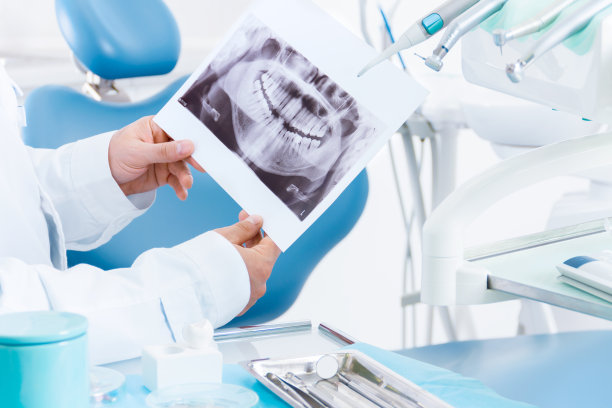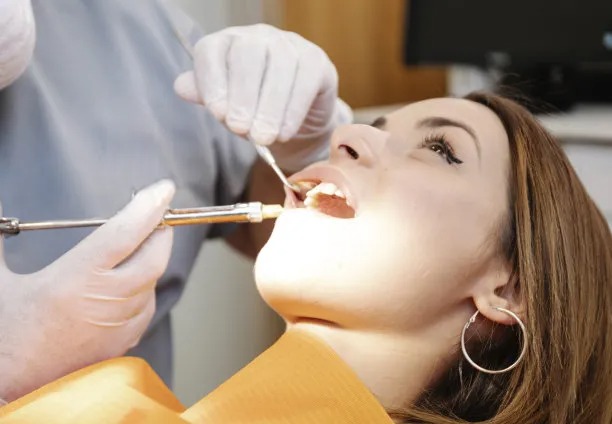Summary: Tooth extraction is often seen as a last resort in dental care, but it plays a crucial role in maintaining overall oral health and preventing future dental problems. This article explores the importance of extracting teeth by discussing four key aspects: preventing the spread of infection, alleviating pain and discomfort, allowing for proper alignment of remaining teeth, and ultimately contributing to long-term dental hygiene. By understanding these benefits, patients can make informed decisions regarding their dental health and recognize when extraction may be necessary to safeguard their overall well-being.
1. Preventing the Spread of Infection

One of the primary reasons for tooth extraction is to prevent the spread of infection. When a tooth becomes severely decayed or damaged, bacteria can infiltrate the pulp and lead to an abscess. This infection can affect not only the tooth itself but also the surrounding tissue and bone.
If left untreated, the infection can spread, potentially leading to serious health complications. Removing the infected tooth can halt this progression and protect the surrounding teeth and gums from exposure to harmful bacteria.
Furthermore, by extracting the infected tooth, the overall health of the patient can improve significantly. It reduces the risk of systemic issues that may arise when oral infections are present, including heart disease and other inflammatory conditions.
2. Alleviating Pain and Discomfort
Another significant benefit of tooth extraction is the immediate relief it provides from pain and discomfort. A problematic tooth can cause constant throbbing, sensitivity, or even debilitating pain that can impact daily life.
Many patients experiencing such discomfort may resort to over-the-counter pain relievers or other temporary solutions, but these methods do not address the root cause. Extracting the problematic tooth not only alleviates the pain but also eliminates the ongoing discomfort associated with dental issues.
This relief often allows patients to resume normal activities without distraction, improving their quality of life. In many cases, patients report significant improvements in their overall mood and well-being following the removal of a troublesome tooth.
3. Allowing Proper Alignment of Remaining Teeth
The alignment of teeth is crucial for effective biting, chewing, and speaking functions. When a tooth is damaged or misaligned, it can affect the position of adjacent teeth. Extraction can correct these issues and thus contribute to better oral functionality.
When a tooth is removed, the space it occupied allows neighboring teeth to realign properly, reducing the risk of crowding or misalignment that can occur over time. This can make future dental procedures, such as braces or implants, more effective.
Proper alignment also promotes better oral hygiene. Crowded or misaligned teeth can trap food particles and plaque, leading to further dental issues. By ensuring that teeth are properly aligned, patients can maintain better oral health and reduce the risk of cavities and gum disease.
4. Contributing to Long-term Dental Hygiene
Lastly, extracting problematic teeth contributes significantly to long-term dental hygiene. Maintaining optimal oral health involves not just treating existing issues but also preventing future complications.
By removing teeth that pose a risk or that are in poor condition, patients can adopt a more proactive approach to their dental care. This includes regular check-ups, benign habits, and minimizing the risk of subsequent extractions.
Moreover, healthy gums and teeth can decrease the need for extensive dental work in the future, which can be costly and time-consuming. Enhancing a patients overall oral health leads to fewer dental emergencies and contributes to long-term health and wellness.
Summary:
In conclusion, tooth extraction, when deemed necessary, serves as a vital component of oral health management. By preventing infections, alleviating pain, ensuring proper alignment of remaining teeth, and contributing to long-term dental hygiene, extractions support patients in maintaining optimal oral health. It is essential for individuals to understand the significance of this procedure and consult dental professionals whenever issues arise.
This article is compiled by Vickong Dental and the content is for reference only.
Vickong Dental
Vickong Dental is a large medical group established in Hong Kong in 2008 by professors from well-known medical universities in Guangdong and Hong Kong, as well as medical doctors from key national '985' universities (including Master's supervisors and senior professors). The chain of branches brings together expert dentists with PhDs and Master's degrees from Hong Kong and Mainland China, committed to providing high-quality dental treatment.
"Vickong Dental Practices the University Motto of 'Healing and Serving Society,' with a Stable Operation for Sixteen Years. It Has Been honored with Hong Kong Enterprise Leaders's Choice,' and is a Global Trusted Implant Center for the Nobel Implant System. Recommended by Hong Kong Metro Broadcast and Guangdong Television, it Serves Customers from Over Thirty Countries and Regions, Gaining the Trust and Favor of Citizens from the Guangdong-Hong Kong-Macau Greater Bay Area and Surrounding Cities.

Thousands of customers' unanimous praise
The most recognized and highly recommended dental service by customers in the Guangdong-Hong Kong-Macau Greater Bay Area
We Ensure You Receive Detailed Care and Attention Here
Hong Kong standards, Shenzhen prices, Your Trusted English-speaking dentists

Vickong Dental Medical-Grade Instrument Disinfection Process
Vickong Dental Medical-Grade Instrument Disinfection Process

Vickong Dental Chain: A Warm and Comfortable Environment for Treatment






Appointment Hours

Q&A
Why choose Vickong Dental?
Vickong Dental practices the university motto 「Medicine to Benefit Society」, with each branch bringing together highly qualified dentists with doctoral and master’s degrees from Hong Kong and the Mainland, and has maintained seventeen years of steady operation。Recipient of 「2024 Hong Kong Enterprise Leaders Brand」, 「2025 Hong Kong Enterprise Leaders Brand」, a Nobel Biocare Global Trusted Implant Center, and a brand recommended by Metro Radio Hong Kong and Guangdong TV。
To date, we have served customers from more than thirty countries and regions,earning exceptionally high word-of-mouth recognition and trusted recommendations from residents across the Guangdong-Hong Kong-Macao Greater Bay Area and surrounding cities
We have eight major branches in Zhuhai、Shenzhen,and a consultation and service assurance center in Hong Kong,so you can book a free consultation at any time for any questions,which is very reassuring.
If I do not accept the quotation after the CT scan, will I be charged??
No! As long as the actual treatment has not started, you will not be charged any fees.
Will there be any additional charges during the treatment process?
No, there won’t be any additional charges. Before treatment begins, we will clearly explain the treatment plan and its corresponding fees. Only after the patient agrees and signs the consent form will we proceed with the dental service.
Can I pay in Hong Kong dollars?
Yes. Vickong Dental accepts payment in Hong Kong dollars. The amount will be converted based on the exchange rate of the day, and the applicable rate will be clearly communicated to you in advance.
Can I reschedule my appointment at any time?
Yes. Please contact us via **WeChat** or **WhatsApp** as early as possible, providing your original appointment time and details, along with your preferred new date and time slot for rescheduling.













